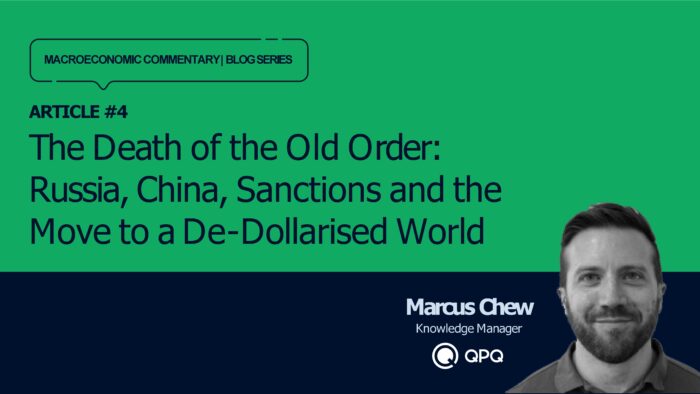
In March of this year, the US-China Perception Monitor published an essay from a prominent think tanker and scholar in Shanghai called Hu Wei. The article made waves in influential Chinese circles and had already been viewed over a million times before it was hurriedly removed from the Chinese internet. In it, Hu made it clear he did not oppose Putin’s war for any moral reasons.
Instead, he pointed out that China have been as surprised as anyone at Russia’s military failures in Ukraine which he feels have served to embolden a previously flagging EU, NATO, and West in general, while also uniting them in horror at Russian atrocities. Such strength of feeling, Hu believes, could lead to the establishment of a new “Iron Curtain”, dividing democracies and authoritarian states.
Hu fears that a broad Western democratic front would also draw Asian countries like Japan and South Korea closer to the West, allowing American hard and soft power to reach new heights while simultaneously serving to isolate and contain China, who would be left heading up a group of nations, including Russia, North Korea, and Iran, considered pariahs on the international stage. Hu concluded by warning that circumstances mean that Beijing will soon be forced into making a decision they desperately wish to avoid – whether to maintain ties with Putin or the West.
After decades of remarkable economic development, with China on the verge of claiming a leading role in helping to define the future of the planet, and Xi months away from consolidating his domestic power for the foreseeable future, will the Chinese leader really put all that in jeopardy by continuing to ally himself to an increasingly erratic Putin?
At the moment, all it seems Xi is likely to get in return is a weak and discredited partner, a man still clinging desperately to a long lost, overly romanticised, unlamented past, leading a nation with diminishing global respect whose lawless actions have only served to unite and embolden China’s international rivals.
Nevertheless, Xi has, for now, continued to tacitly support his Russian counterpart, a testament to the strength of their personal relationship and the fact that China have yet to become subject to any punishing secondary sanctions. This limited pro-Russia neutrality stance will, I believe, remain so long as the united front being displayed by the West stays in place, but make no mistake, any crack or weakness in that alliance will be exploited.
War is chaos, but out of chaos comes opportunity. As stated in the introduction to this series of articles – Russia’s invasion of Ukraine could mark a decisive economic turning point, precipitating a shift to a bipolar global financial system – with the dollar on one side and the renminbi on the other. The truth is that there has not been worldwide condemnation, nor action taken against Russia. It has been a strictly Western-led coalition. South Africa, Brazil, Mexico, Iran, and India have all joined China in taking a neutral or quietly supportive stance towards Putin’s actions.
They, like a number of other nations, have been dismayed by the way sanctions have been imposed on Russia, with many seeing it as undermining the credibility of the international monetary system, and some even as the end of globalisation. Why? Well, whether you’re of the opinion that they deserved it or not, the fact is that the Russians have been financially excommunicated from a global system that had been championed as an entirely inclusive, neutral framework of rules, not a cudgel with which to beat those who step out of line of American or Western interests.
A particular point of contention has been the freezing of more than half of Russia’s $643 billion in foreign currency reserves, a situation exacerbated by senior US and EU officials openly discussing using the funds to help rebuild post-war Ukraine. With the dollar being the dominant global currency, can those nations who keep reserves of it still feel that their money is safe and won’t be taken from them without due process or as a result of a wave of social and/or conventional media pressure emanating from the US?
This weaponization of the dollar has increased mistrust of America outside of its traditional allies and could see an acceleration of the currency’s slow international decline as those who regard themselves as existing outside that circle seek safer alternatives.
It can sometimes be easy to forget, but the dollar is not omnipotent. It may, as mentioned previously, enjoy a 59% share of the global foreign exchange, but that is down from 71% in 1999. Perhaps surprisingly, only a quarter of that drop went to the renminbi, the rest spread to smaller currencies such as the Australian and Canadian dollar, and a clutch of Nordic ones. Further damaging fragmentation could come from a combination of the rise of digital currencies, and China choosing to eschew their customary caution and going on the offensive by corralling those nations that feel disenfranchised and disillusioned to form a powerful rival economic bloc to that in the West.
The likelihood is, though, that China will not attempt to rock the boat, at least not in the near future. Their development as a nation has been borne out of consistently taking a methodical and long-term approach to affairs, so one cannot imagine them ever being as rash or willing to gamble as Putin has been. Add to that the fact that nowhere has the liquidity and access that the US market has.
Simply put, China can either have a global currency and a collection of economic vassal states that might one day rival the dollar and the Western alliance, or it can retain rigid control over its domestic financial system. It cannot have both, and the Chinese are smart enough to know that.
